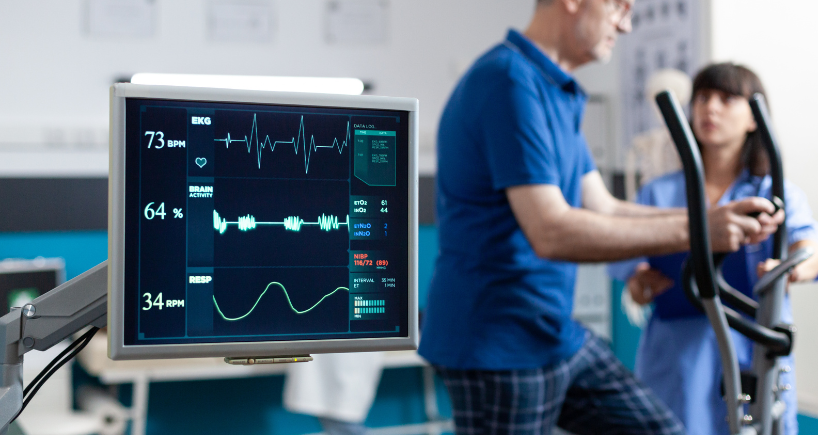
Understanding the Role of ECG in Detecting Heart Blockages
In today’s fast-paced work life, a busy and often sedentary lifestyle has become the norm for many. This shift has led to an alarming rise in cardiovascular disease, posing a significant threat to global health. Amidst the hustle, it is crucial for individuals to prioritise their healthy lifestyle by adopting healthy habits and undergoing regular medical screening. One of the most effective tools for early detection of heart blockages is an Electrocardiogram (ECG).
What are heart blockages? How can it be detected?
Heart blockages occur when coronary arteries, responsible for delivering oxygen-rich blood to the heart muscle, become narrowed or obstructed by fatty deposits known as plaques. This condition, called coronary artery disease (CAD), if not treated timely, can further lead to various cardiac complications such as heart attack.
An electrocardiogram (ECG or EKG) is one of the common tests to detect heart-related conditions. The instrument records the heart’s electric activity through electrodes attached to the skin. Abnormalities in the ECG can help detect heart blockages or areas of the heart that may not be receiving enough blood flow.
Understanding ECG
An electrocardiogram is a quick test used to assess the heart function. The standard ECG machine has small plastic patches called electrodes, which are 12 in number. A total of ten are placed on the chest arms and then one each on the forearms and calves which are connected to an ECG machine. The machine records and prints the electrical activity of the heart. The procedure takes around 5–10 minutes.
The heart’s natural electrical impulses coordinate its contractions, ensuring proper blood flow. An ECG records these impulses, showing the heart’s rate, rhythm (whether steady or irregular) and the timing of the electrical signals as they move through the heart. Changes in an ECG can indicate various heart-related conditions.
However, it is important to understand that though ECG provides information on the heart’s electric activity, it cannot directly detect heart blockages. ECG recognises certain signs or impairment in heart conditions that could recommend further testing to check heart blockages.
Types of ECG
There are several types of ECG used to measure heart function
- Resting ECG: This test is done when you lie on your back. It is important to stay calm and avoid body movements as it may impact the results.
- Exercise ECG: This measures the heart’s electrical activity while you are physically active, usually by riding an exercise bike. The intensity of the exercise gradually increases, making it harder to pedal. Your blood pressure is monitored regularly, and the test is stopped if any irregularities are detected in the ECG.
- Holter monitor: It monitors the heart’s electrical activity for 24 hours. Electrodes attached to your chest are wired to a recording device worn as a belt or around your neck. You can go about your daily activities while wearing the monitor. The recorded data is later analysed by a doctor. You also keep a diary of your activities and any unusual events, which helps the doctor interpret the ECG results.
What do the ECG results show?
A 12-lead ECG provides a complete overview of the heart’s electrical activity from different angles. If the test results are normal, your heartbeat is consistent at 60 to 100 beats per minute (bpm). When evaluating heart rhythm, P waves, which indicate atrial activity, should be observed. A sinus rhythm is present when each P wave is followed by a QRS complex. If the P waves are irregular, it may suggest sinus arrhythmia.
What does an abnormal ECG result indicate?
An abnormal ECG result can indicate various issues related to the cardiovascular system. Here are some of its common findings:
- Arrhythmias
- Heart attack
- Heart blockage
- Congenital defects in heart structure
If you have any issues with ECG, it is important to discuss them with your healthcare provider for detailed interpretation and appropriate follow-up.



















